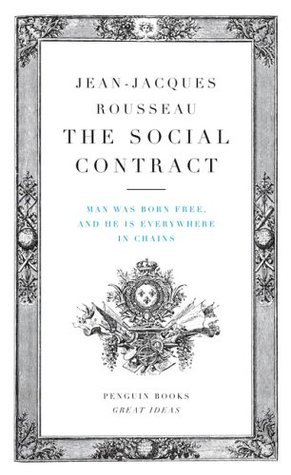
Discourse on the Origin of Inequality
Book Description
What if the very foundations of society are built on inequality? In *Discourse on the Origin of Inequality*, Rousseau challenges the status quo, unraveling the complex web of social, moral, and political constructs that bind humanity. As he delves into the origins of wealth, power, and privilege, he exposes a world where innocence is corrupted by civilization’s progress. With each page, tensions rise as he confronts the paradox of freedom in an age of disparity. This gripping exploration forces a profound question: can a society truly thrive when its foundations are marked by inequality?
Quick Book Summary
Jean-Jacques Rousseau’s "Discourse on the Origin of Inequality" is a seminal work of philosophy examining how inequality developed in human society. Rousseau distinguishes between natural (or physical) inequality, which arises from differences in age, health, physical strength, and intelligence, and moral or political inequality, stemming from wealth, honor, and social privilege. Rousseau argues that the progression from the state of nature to civilization led to the corruption of natural innocence, creating artificial disparities. The advent of private property, social contracts, and organized government institutionalized inequality, favoring the powerful. Rousseau’s discourse invites readers to reflect on the true roots of inequality and the extent to which civilization, rather than elevating humanity, has instead deepened social divisions.
Summary of Key Ideas
Table of Contents
The State of Nature and Human Innocence
Rousseau begins by conceptualizing the state of nature—a hypothetical time before organized society and government—where humans lived in a simple, solitary, and innocent existence. In this state, people acted out of basic needs like food, rest, and self-preservation, guided primarily by instinct and compassion rather than reason or societal norms. There was little to no inequality beyond what nature imposed, such as differences in physical strength or health, and people felt neither pride nor envy. Rousseau contrasts this natural innocence with the corruption brought about by progress and society.
The Development of Private Property
The catalyst for inequality, Rousseau argues, is the advent of private property. He famously asserts that the first man who claimed, “this is mine,” marked the beginning of true social inequality. The division of land and property led to the accumulation of wealth for some and poverty for others, sowing the seeds of ambition, greed, and competition. This shift not only created economic disparities but also influenced human behavior, encouraging vices such as jealousy, pride, and the desire for domination.
The Rise of Civil Society and Social Contracts
As communities grew, humans began to form social contracts and collective agreements in an effort to protect themselves and their resources. Rousseau posits that these early social contracts did not establish equity but instead protected the interests of the property-owning elite. Institutions like government arose not to ensure justice for all, but to safeguard wealth and power. These structures formalized the existing inequalities, shaping the development of laws and social customs that favored certain groups.
Institutionalization of Social Inequality
Rousseau scrutinizes how these institutions eventually perpetuate an entrenched hierarchy, where positions of privilege, authority, and wealth are passed down and defended. Inequality becomes institutionalized, supported by laws and social practices that justify the dominance of the few over the many. The resulting moral and political inequalities are artificial, arising from conventions, rather than any inherent natural differences between individuals.
Critique of Modern Civilization
Rousseau’s critique of modern civilization is scathing; he argues that technological, economic, and cultural progress have led not to genuine human flourishing but to alienation and deeper social rifts. He questions whether civilization, in its current form, can produce happiness or justice when its foundations are built on inequity. By unveiling the origins and mechanisms of inequality, Rousseau challenges readers to reconsider what true freedom and virtue demand, and to imagine a society that restores dignity and equity to all.
Download This Summary
Get a free PDF of this summary instantly — no email required.





